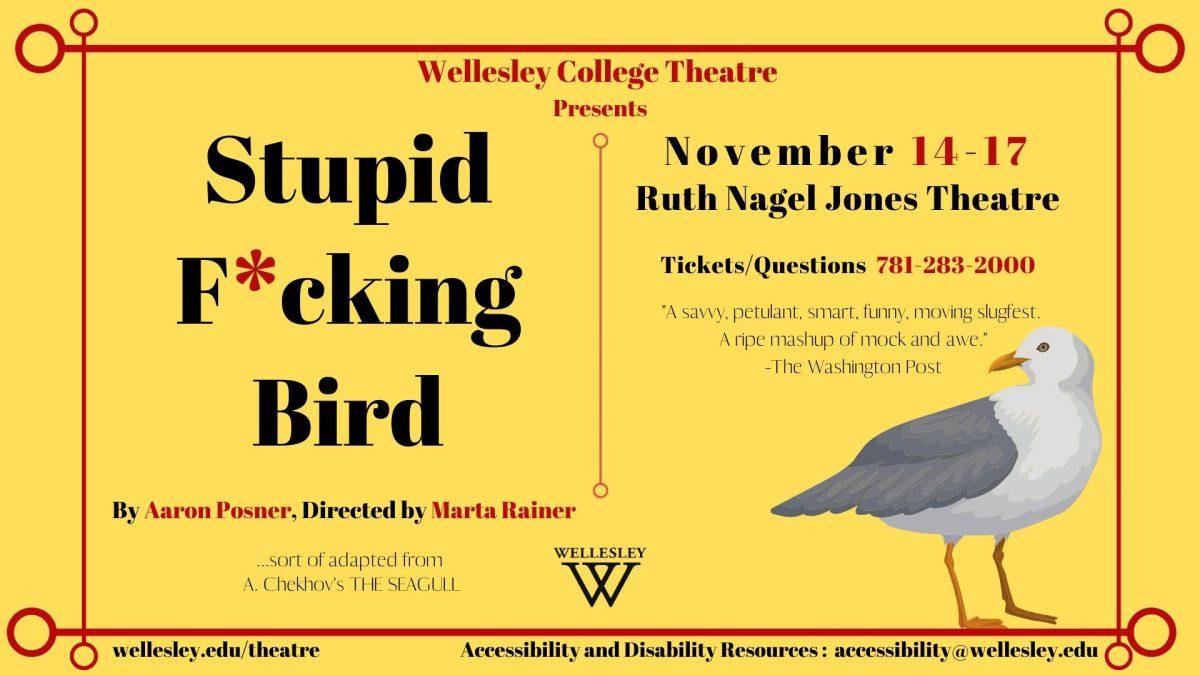The first five minutes of “Stupid F*****g Bird” are a good indicator of how the remainder of the show went. It revels in its use of profanity, hoping to provoke the audience. If the title did not already do that, the show will not begin until someone in the audience says, “start the f*****g play.” Then, a few minutes in, Mash (Jessi Kim ’23) expresses that plays are stupid in that they are people pretending to be other people. The show seeks to constantly reminds the audience that what they are watching is not really happening. It couches this in profanity and mocks the audience. Despite this, the play still aligns itself with themes of love and art.
We can see both these things in the way the director and actors have approached the show. Although the character Con (Micah Fong ’22) says that the show we are watching is not a great piece of art, the creative team approached it as if it was. They put care and thoughtfulness into “Stupid F*****g Bird” presumably because they believed it was a good piece of art. The time and dedication put into the show by the actors, director and remainder of the creative team reveals their love for the show. Without the creators loving the show and seeing it as an important piece of art, we would not have these kinds of noteworthy performances.
And they certainly are noteworthy performances. Actors are required to tackle two different aspects that can be challenging for college theatre: actors play characters much older than themselves and characters of another gender. This requires immense thoughtfulness in terms of movement, voice and behavior that are clear in the actors’ performances. Young adults playing middle aged women or aging men believably are certainly hard to come by. Yet, the cast of “Stupid F*****g Bird” did so quite well.
Does “Stupid F*****g Bird” do anything new? Not really. Quite obviously, it is not even an original show, but based on Anton Chekhov’s “The Seagull.” There are plenty of shows that play with profanity and metatheatre. There are plenty of other plays about art. But does that make it less important? It is a question asked by the characters themselves and presented to us as an audience
A quick Wikipedia skim of Chekhov tells you he believed that plays should ask questions, not answer them. And for all the mocking of Chekhov the show does, Posner, the playwright of “Stupid F*****g Bird,” follows suit in this piece. It is a piece of theatre that queries: what is the point of theatre? Should it simply offer entertainment or catharsis that keeps the audience in their comfort zone? Or, should it attempt to change the audience? Or the world? It leads the audience to ask their own questions as they exit the theatre: what can we take away from this show to change the way we think about the world? And what should we take away to change the way we live?





